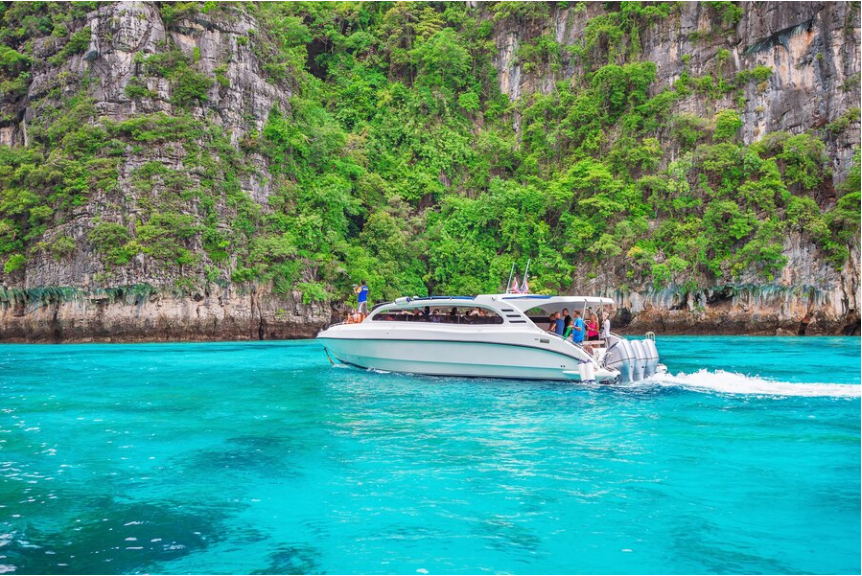The agency executes diverse activities and initiatives to ensure the island’s tourism industry maintains its competitive edge. The organization maintains a global perspective and local sensitivity as it meets the broadest objectives of its National Tourism Management Policy.
Located in the heart of the Caribbean, Grand Cayman, Little Cayman, and Cayman Brac are famous for their beaches, reefs, and marine life.
Tourism Product Development
It has focused on ensuring that the Cayman Islands offer a high-quality tourism product for residents and visitors. To this end, the Department has been leveraging its relationships with key industry partners to keep Cayman top-of-mind among vital international markets and build the local capacity to manage tourism. A public sector agency like the Cayman Islands Department of Tourism (CIDOT) actively promotes the region’s attractions, playing a crucial role in bolstering tourism and economic development in the Cayman Islands.
As a result, several initiatives are underway to ensure that the Cayman Islands remain one of the world’s premier travel destinations. These include a new tourism film to be launched in the coming weeks and bespoke experiences that showcase the beauty and culture of Grand Cayman, Little Cayman, and Cayman Brac.
The agency’s UK team has contacted tour operators and travel agents who can add the Cayman Islands to their destination offerings. In November, the team hosted two groups of tour operators planning to incorporate the Cayman Islands into their product offerings. In addition, they recently hosted influencers and travel media to showcase Cayman’s newest soft adventure activities.
The tourism industry is also working to develop a solid and skilled workforce to serve the island’s visitors. To this end, the Department is partnering with the Caribbean Tourism Organization and several CTO member countries on an “Knowledge & Skills Audit for the Caribbean Tourism Industry initiative.” This project will evaluate the region’s availability of tourism-related knowledge and skills.
Destination Marketing
Tourism has been one of the sectors most affected by the global economic crisis, with demand declining significantly in many places. As economies recover, sector-specific support must be provided to aid the recovery of tourism jobs, businesses, and destinations. This may include direct financial support and facilitating access to credit. Examples can be found in Thailand, providing loans to tourism operators, or Vanuatu offering grants to retrain staff and subsidized business fees for small businesses.
A destination marketing organization (DMO) is an organization that promotes a region as a travel destination to potential travelers, typically via varied promotion strategies. They serve as the voice of a city, acting on behalf of its hotels, attractions, local businesses, and more – publicizing the destination to travelers from all over the world. Hotel Occupancy Tax often funds them.
As the Cayman Islands are becoming increasingly visited, we must take a proactive approach to ensure that our visitors receive first-class tangible and intangible experiences while visiting the islands. To this end, we are working to promote our ‘Local Experiences’ campaign, encouraging our visitors to discover the unique charms of each island through our various online platforms and marketing channels. This complements our existing ‘Discover Cayman’ campaign that focuses on the Islands as an ideal luxury destination for business, leisure, and weddings/events.
Tourism Research & Analytical Services
Tourism contributes to sustainable development by creating direct employment and income-earning opportunities, providing access to affordable goods and services, contributing to poverty alleviation, and preserving cultural, natural, and scenic resources. However, growth is not without drawbacks – UN Environment research indicates that under ‘business-as-usual’ scenarios, tourism consumes large amounts of water and land, produces solid waste, generates greenhouse gases, and pollutes the air. To achieve sustainable tourism, governments must take effective preventive and corrective measures to minimize negative impacts.
As the global recovery takes shape, an agency focuses on supporting Cayman’s tourism industry through targeted and accessible support for workers, communities, and destinations. This includes working closely with the Ministry of Health to keep visitors safe and informed.
As the crisis unfolds, it is clear that traveler behavior is evolving and will continue to do so over the longer term. In the new normal, travelers will likely favor more sustainable and authentic tourism experiences. The emergence of new niches and market segments will probably be shaped by changing perceptions about sustainability, interest in local technology, smart cities, luxury services, hygiene protocols, and emotions. It is also expected that there will be a shift towards domestic destinations and activities. This is a positive development for the Cayman Islands as it offers its visitors a variety of exciting and unique options to explore.
Tourism Training
Tourism is one of the world’s leading industries and significantly impacts nature, communities, and cultures. The industry also contributes to and is affected by climate change, highlighting the need to implement preventative measures to mitigate its impacts.
Now, they are working towards building a robust and sustainable tourism workforce in the Cayman Islands by offering online courses on sustainability. These courses are accessible to all network members and strongly emphasize using tools to support sustainability in daily operations.
The global economic crisis has created uncertainty, and travel and tourism demand remains depressed. Risk-based solutions to safely lift travel restrictions and get the international tourism ecosystem running must be grounded in robust evidence and research.
Some are developing an online Tourism Academy to offer courses on sustainability principles in tourism and best practices for tourism management. The Academy provides flexible, self-paced, interactive learning opportunities, enabling students to reconcile their studies with work and other personal commitments. In addition, it hosts a series of employability training sessions for Caymanian nationals through its Immersed program. The first session, held this year, focused on preparing and cooking one of Cayman’s most iconic foods: fried fish and cakes. Eight of the 12 participants who completed the program have subsequently secured positions with Dart-owned hotels.







